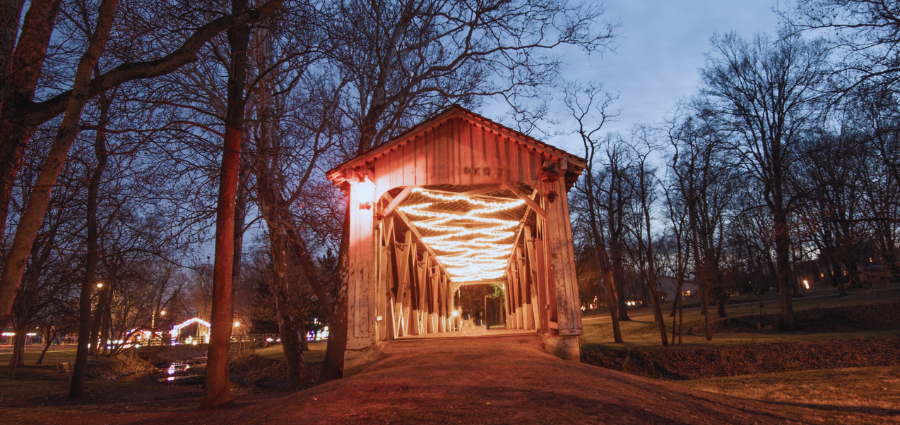
Why pray? | Holy lives of inspiration
My cousin and I went searching for a waterfall during a hike. We heard it was a few miles inside the forest, and we nearly got lost looking for it. Our cell phones had no signal, the trail marks vanished, and panic set in until we spotted a weathered wooden signpost half-buried in leaves. Its arrow pointed decisively toward a river, and scribbled on it were the words, “Keep going. The view is worth it.” That signpost didn’t care if we thanked it, admired its craftsmanship, or took a selfie with it. It existed for one purpose: to point beyond itself to something greater.
This mirrors the story of Paul and Barnabas in Lystra. After healing a paralyzed man, the crowd erupted, convinced the Greek gods Zeus and Hermes had descended. But the apostles didn’t bask in the adoration. They tore their clothes in distress, crying, “Why are you doing this? We’re just signposts, ordinary humans pointing you to the living God!” (Acts 14:15). The people there weren’t evil; they were spiritually disoriented.
Their myths told of gods visiting in disguise, so they defaulted to familiar explanations. Yet Paul and Barnabas knew accepting worship wouldn’t just be arrogant, it would obscure their path to God. Instead, they used their moment of fame to redirect glory: “Turn from these empty things to the living God!”
Imagine a lighthouse demanding applause for its beams instead of guiding ships to shore. Absurd, right? Yet we often mirror this leader, claiming sole credit for team success, artists boasting self-made talent, and influencers clinging to titles like indispensable. Contrast this with Abraham’s unnamed servant in the book of Genesis. Tasked with finding Isaac a wife, he journeyed to a foreign land, prayed for guidance, and executed a flawless plan. When Rebekah’s family praised him, he refused credit: “The Lord has guided me.” He remains unnamed because he was a signpost, not the subject.
King Saul’s story warns of the opposite trajectory. He began as a humble signpost but became a monument to his ego. When crowds chanted, “Saul has slain thousands, but David tens of thousands!” his hunger for acclaim and jealousy devoured him. His downfall reminds us that we block the view when we care more about being seen than pointing to what matters.
True signposts are bridges, not heroes. They may be doctors who say, “My job isn’t to be the hero but to connect patients to healing,” coaches who train athletes to outshine them, parents nurturing a child’s independence over their legacy, or friends who insist, “Don’t thank me; thank God for letting me help.” They live as arrows on a signpost, not as destinations.
Here’s our challenge: Live like that arrow on a trail. When praise comes, say, “Keep going.” When admiration flares, whisper, “The best is yet to come.” Because the world doesn’t need more celebrities or influencers, it needs signposts. People who know their role isn’t to be the miracle, but to point toward the Miracle-Worker.
Father Boby John, C.S.C., ordained a priest in the Congregation of Holy Cross in 2008, worked as a pastor and an educator with tribal populations in Northeast India for thirteen years. Originally from Kerala, India, Father Boby grew up with his parents and three siblings. He is a dedicated and detailed educationist with a Master's degree in Educational Management and is pursuing a PhD in Educational Leadership. He is currently working as the Co-Director of Family Rosary, USA, and as the chaplain at the world headquarters of Holy Cross Family Ministries, North Easton, Massachusetts.
